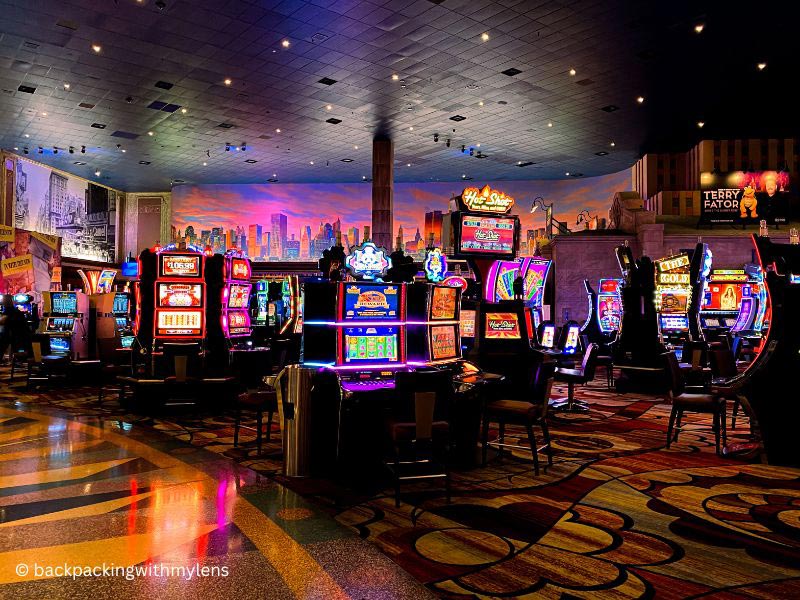
Gambling Games and Their Impact in Popular Culture

Gambling games have long captured the imagination of individuals around the globe, becoming an essential part of both entertainment and culture. From the glimmering lights of Las Vegas to the immersive experience of virtual casinos, these activities evoke enthusiasm, uncertainty, and sometimes even a sense of nostalgia. They are more than just entertainments; they have woven themselves into the texture of human experience, influencing everything from film and songs to style and literature.
The allure of casino games goes beyond the gambling aspect, tapping into larger themes of luck, chance, and psychology. As players gather around a gaming table or rotate the roulette wheel, they engage in an timeless ritual that connects with our shared desire for adventure and unpredictability. This captivation has led to the growth of countless references in films, music, and gaming, showcasing how strongly entrenched these pastimes are in popular culture. Whether it is the pressure of a classic heist movie or the colorful nightlife portrayed in music videos, casino games have established a substantial niche that reflects our relationship with risk.
Cultural Impact of Casino Activities
Gambling activities have played a pivotal role in cultural aspects throughout history. Stemming from ancient societies, games of chance were often linked to rituals or gatherings. For instance, early iterations of gambling can be linked back to ancient China and the Romans, where dice games and wagering on results were popular pastimes. These games not only served as leisure but also as methods of connecting people, facilitating relationships among individuals within communities.
As cultures evolved, so did the sophistication and structure of gambling games. The establishment of official casinos in the 17th century, particularly in Italy, marked a major shift in how games were viewed and organized. With designated spaces for gaming, the casino became a community center where patrons from various backgrounds gathered. This change contributed to the legitimization of gambling, transforming it from a mere pastime into an established industry that influenced the economy and policy.
The effect of casino activities on mainstream culture cannot be understated. As they were popularized in literature and film, games such as poker and blackjack became symbols of chance, luck, and strategy. Famous characters and stories have developed around these activities, illustrating societal attitudes towards luck, prosperity, and vice. This interest with gambling games has infiltrated various forms of media, cementing their status in the collective consciousness and connecting them to broader cultural narratives throughout the ages.
Depiction of Casino Games in Entertainment
Casino activities have long been a popular subject in different types of entertainment, reflecting both the excitement and intricacies of gambling culture. Films such as Ocean's Eleven and Casino Royale portray individuals who navigate dangerous scenarios, showcasing not only the appeal of the gambling environment but also the tactics and choices that come with playing popular games like poker and 21. These movies often dramatize the excitement of winning and the potential consequences of losing, encapsulating the risks involved in gambling.
TV programs have also explored the realm of gambling activities, often integrating them into the storyline as a setting for story progression and tension. Shows like Las Vegas depict the experiences of casino workers and casino-goers, highlighting the lively, often chaotic energy of the casino floor. Docuseries featuring high-stakes gambling competitions further emphasize the appeal of casino games, drawing viewers into the excitement and strategy involved in each game. Through these depictions, media not only entertains but also sparks conversations about luck, skill, and the nature of chance.
Video games have increasingly included casino games into their design, allowing players to recreate the thrill of gambling without financial exposure. Titles within the realm of online gaming often include online slot machines, poker, and other popular casino games, creating an immersive gameplay that mirrors real-life gameplay. These digital representations make casino games accessible to a worldwide viewer base, appealing to both players who indulge and those who enjoy the rush of simulation. As a result, the representation of gambling activities in entertainment continues to shape cultural attitudes and importance, highlighting their function in entertainment and social context.
Effect of Casino Games on Communities
Gambling activities have a significant effect on communities, affecting multiple aspects of culture and social behavior. They often serve as a platform for community engagement, where people gather to enjoy a shared experience. Casino trips with friends or trips to casinos become group events that foster connections and create shared moments. This communal aspect enhances the fun value of gambling activities, making them a favored choice for festivities and recreational pursuits.
Moreover, casino games have been portrayed in numerous films, television shows, and literature, shaping views and opinions towards gambling and gaming. Icons like James Bond competing in baccarat or the intense poker scenes in films have cemented these games in the shared imagination. This representation often glamorizes the lifestyle associated with gambling, attracting new players and impacting trends in both fashion and behavior. These representations can ignite curiosity and lead to a deeper investigation of the nuances of gambling.
Nonetheless, there are also adverse implications linked to the popularity of casino games. The temptation of quick monetary gain can lead to gambling addiction and financial troubles for some people. The community must grapple with these consequences, promoting responsible gaming and awareness of the dangers involved. Finding a balance between the entertainment value of gambling activities with the risks is vital to ensure that they remain a beneficial aspect of our societal fabric.
https://8ok.today/
